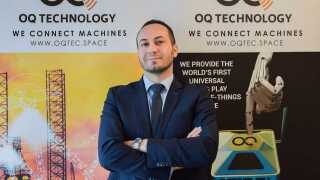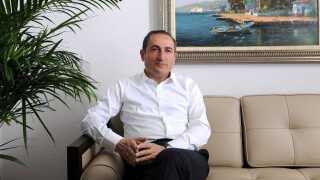|
|
"I have a passion for moving technology. I consider it beautiful, which is why I spend money on watches and admire cars. Telecommunications is a moving mechanism but it is not beautiful; it is efficient and it provides for needs, not desires."
This is how Andreas Hipp describes the industry he has worked in for the past 12 years, in a range of roles for four very different companies. From the boom to bust to boom telecoms economy, from bankruptcy to year-on-year profit, from combating corruption to working with colleagues as close as an adopted second family, from Enron to Epsilon, Hipp has experienced most elements of the telecoms industry.
"The telecoms market has fluctuated in three stages over this decade," Hipp says. "Capacity started at the right time; in 2000, money was being poured into networks, operators and equipment manufacturers and everything was on the rise. Until mid-2001 the telecoms market was a good place to be. Since then, I have seen a lot of bankruptcies because companies were senseless; they sat on big networks but did not attract money because there were not enough customers. From 2005, things started to recover and demand grew enough to stabilise the market."
Hipp continues: "Following 2001, many networks and companies were sold and many changed owner. It was an administration stage and the confidence in the market was gone – smaller companies were cast aside and customers went back to the big incumbents."
Hipp believes that his job at polymer company, Raychem, which produced cable services for power and telecoms cables, prepared the way for his entrance into the telecoms market. While building networks for mobile operators, railway companies and city utilities, Hipp's interest in telecoms increased, and he applied for a role as carrier business manager at Storm Telecom.
"When I first read the advertisement, I thought the term 'carrier' meant Storm was a transport company," he reflects. "Storm was 80% owned by Telenor at the time, and I was tasked with building up the Austrian, Swiss and German offices. Like so many telcos in 2000 and 2001, they decided to invest in fibre infrastructure, and with the market as it was, there was always a venture capital firm in the US looking to invest in telecoms. Telenor sold its stake, Merill Lynch invested and Storm Telecom was financed. By 2001, this network ambition was wiped out."
Moving on from Storm, Hipp had two options and many might argue that he chose the wrong one. He took a role with energy and power company Enron, rejecting a role at Dynergy, which had already invested in a telecoms network in Europe. Enron had not and Hipp was intrigued by the potential to pursue his own initiatives within the company. Enron, working with the largest carriers in the world, had a distinct vision of the network it wanted to create, with point-to-point presence connectivity; but its approach proved to be misguided.
"Energy traders did not understand the background and the mentality of the telecoms industry, nor did they talk to carriers properly," says Hipp. "It was a very strange and aggressive environment because of the size of Enron and indeed the arrogance of the people that worked there. Some company executives were even banned from France Telecom's offices."
Enron's bankruptcy was confirmed in late 2001. "I got out before it happened so I got my severance package. I went to do a job and it failed so there was no point in hanging on. Everything there was a show and the company's collapse has to be attributed to accounting creativity through counting trades - they would sell one circuit from Frankfurt to LA and declare it as six trades considering the amount of equipment used."
At Epsilon, Hipp has drawn lessons from his time at Enron and approached business in a different way. Starting relatively small, the communications provider now has 140 carrier customers in 90 different countries and was declared as the 37th fastest growing technology company in a league table published in 2010 by the Fast Track Group, in association with the Sunday Times.
"There are not many companies which can sustain growth in a recession but we have managed to grow on aggregate over the past three years in both revenue and profit. We invested approximately £1.5 million on keeping the network resilient in 2008 and we try not to borrow capital finance or hold any loans or debts," says Hipp.
It is the emerging, underdeveloped markets that will shape telecoms over the next 10 years; according to Hipp these should ensure that the market remains sustainable, escaping the dips experienced in the last 10 years. "Latin America, the Middle East and emerging markets like Iran and Afghanistan will learn from Europe's mistakes," predicts Hipp. "Telecoms needs to establish an understanding with its customers that you have to pay for a service. The market did not do itself a favour with flat-rate models, free evening calls and free network calls - Asia has already learnt from this mistake."
Hipp, driven by his success to date, has no plans to retire. "There is a lot I still have to do. I started this company and I will finish the job."




